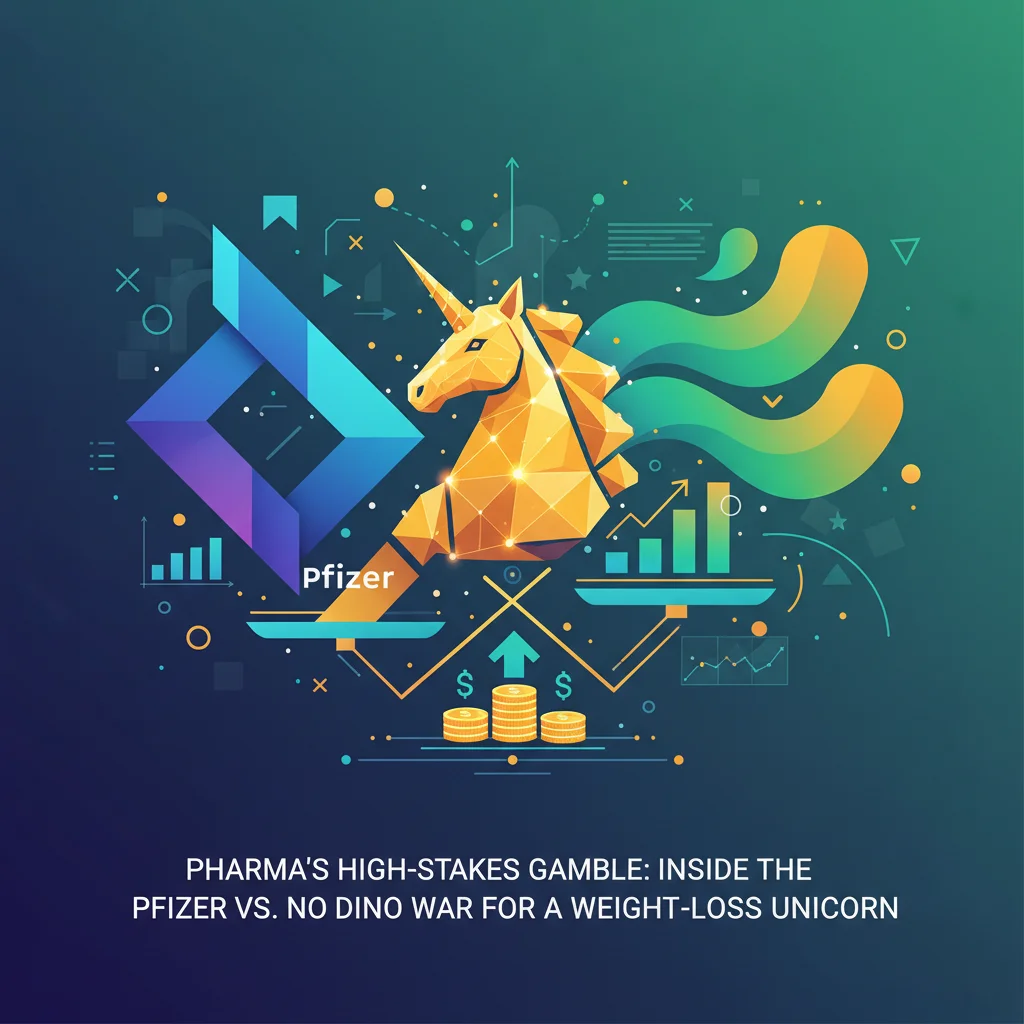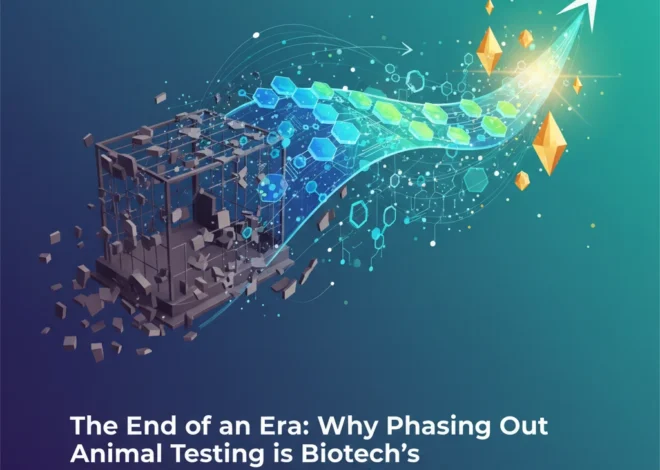
Pharma’s High-Stakes Gamble: Inside the Pfizer vs. Novo Bidding War for a Weight-Loss Unicorn
In the high-stakes world of pharmaceutical finance, few battlegrounds are as fiercely contested as the burgeoning market for obesity treatments. A new chapter in this saga is unfolding as two of the industry’s titans, Pfizer and Novo Nordisk, are locked in an escalating bidding war for Metsera, a US-based biotech firm whose promising weight-loss treatment has made it one of the most coveted assets in modern medicine. The latest development, a sweetened offer from Pfizer designed to match a competing bid from Novo Nordisk, signals that this corporate clash is far from over. This isn’t just a simple acquisition; it’s a strategic chess match with profound implications for the future of healthcare, the global economy, and the portfolios of savvy investors.
The fight for Metsera is a microcosm of a much larger gold rush. The market for novel obesity drugs, led by GLP-1 agonists like Ozempic and Wegovy, is exploding, with some analysts projecting it could become a trillion-dollar industry. For the companies involved, securing a next-generation therapy is not just an opportunity for growth—it’s a matter of strategic survival. This blog post will dissect the anatomy of this takeover battle, explore the financial and economic forces at play, and offer an expert perspective on what this means for the future of investing in the biotech sector.
The Prize: Why Metsera is at the Center of a Pharma Frenzy
To understand why two multi-billion dollar corporations are vying for a smaller biotech firm, one must look beyond the balance sheets and into the science. Metsera represents the next frontier in metabolic medicine. While current market leaders from Novo Nordisk and Eli Lilly have revolutionized weight-loss treatment, the industry is relentlessly pursuing therapies that are more effective, have fewer side effects, offer better long-term health outcomes, or provide more convenient administration (such as a daily pill instead of a weekly injection).
Metsera’s pipeline is rumored to contain just such a compound. While specific details remain confidential during the bidding process, the intense interest from industry leaders suggests its lead candidate could be a “best-in-class” asset. This could mean a dual or triple-agonist drug that targets multiple metabolic pathways simultaneously, potentially leading to greater weight loss and added benefits like improved cardiovascular health or reduced liver fat. According to reports, the initial bids and subsequent escalations reflect a valuation that places a massive premium on this future potential, a common practice in biotech M&A where the real value lies in intellectual property and clinical trial data (source).
The financial incentive is staggering. The global market for anti-obesity medications is projected to reach well over $100 billion by the end of the decade. Capturing even a fraction of this market can transform a company’s fortunes, sending its stock price soaring and securing revenue streams for years to come. This potential for explosive growth is why the stock market watches every move in this space with bated breath.
The Apple Tax on Trial: How a UK Ruling Could Redefine Big Tech's Financial Power
A Tale of Two Titans: Strategic Imperatives at Play
The battle for Metsera is driven by two very different, yet equally powerful, strategic motivations. For Novo Nordisk, it’s about defending a kingdom. For Pfizer, it’s about building a new one.
Below is a comparison of the strategic positions of the two primary bidders:
| Company | Strategic Position | Motivation for Acquiring Metsera | Potential Risk |
|---|---|---|---|
| Novo Nordisk | Market Leader (Wegovy, Ozempic) | Defend market share, acquire next-gen technology, block a major competitor, and expand their R&D pipeline. | Overpaying for an asset in a defensive move, potential antitrust scrutiny. |
| Pfizer | Market Entrant | Establish a strong foothold in the lucrative obesity market after previous setbacks in their own development programs. | Integration risk, high acquisition cost impacting short-term profitability, clinical trial failure of the acquired asset. |
Novo Nordisk, the Danish firm that pioneered the GLP-1 revolution, is playing defense. Having built a dominant position, its greatest threat is a competitor leapfrogging its technology. Acquiring Metsera would be a powerful move to neutralize a potential threat and absorb cutting-edge innovation into its own pipeline. It’s a classic strategy for an incumbent: buy the disruption before it disrupts you. As noted in the Financial Times, Novo’s initial bid was aggressive, signaling its intent to protect its turf.
Pfizer, on the other hand, is on the offensive. The pharma giant, flush with cash from its COVID-19 vaccine success, largely missed the first wave of the GLP-1 boom. After facing setbacks with its own oral weight-loss candidate, an acquisition has become the most viable path to market entry. For Pfizer, Metsera isn’t just an asset; it’s a key to unlocking a multi-billion dollar revenue stream and reassuring investors about its long-term growth strategy. The fact that Pfizer matched Novo’s sweetened offer (source) demonstrates a deep commitment to winning this prize, whatever the cost.
The Financial Engineering of a Takeover
A bidding war of this magnitude is a masterclass in corporate finance and strategy. The “sweetened offer” mentioned in the report is a carefully calculated move. It involves complex valuation models, often managed using sophisticated financial technology (fintech) platforms, that attempt to price an asset based on future, uncertain cash flows. The acquirer must calculate the Net Present Value (NPV) of Metsera’s drug pipeline, factoring in probabilities of clinical success, market adoption rates, and competitive pressures.
For investors, this high-stakes trading environment creates both opportunity and risk. The target company’s stock (if public) typically soars on acquisition news. The acquirer’s stock, however, can be a mixed bag. A strategically sound acquisition can boost long-term value, but if the market perceives the price as too high, the acquirer’s stock can fall on fears of shareholder value destruction. This is the delicate dance of M&A: convincing the market that the premium paid today will generate superior returns tomorrow.
The role of investment banking firms is crucial here. They act as advisors, helping to structure the deal, arrange financing, and navigate the complex regulatory landscape. The fees generated from a multi-billion dollar pharma takeover can be enormous, making these deals highly lucrative for Wall Street.
A Tale of Two Titans: Why Wall Street Cheered Google's AI Strategy and Jeered Meta's
Broader Implications: The Ripple Effect Across the Market
The outcome of the Pfizer-Novo-Metsera triangle will send ripples far beyond the three companies involved. A successful acquisition by either party will reshape the competitive landscape for years to come.
- Validation for the Biotech Sector: A high-premium acquisition of Metsera reinforces the value of innovative R&D. It will likely spur a new wave of venture capital investing into smaller biotechs focused on metabolic diseases, as investors hunt for the “next Metsera.”
- Pressure on Competitors: Other major pharmaceutical players, such as Eli Lilly, Amgen, and Roche, will be watching closely. A Pfizer win would introduce a formidable new competitor, while a Novo win would further cement its dominance. Either outcome will force rivals to accelerate their own R&D or seek their own M&A targets.
- The Future of Healthcare Innovation: In an ideal world, this competition drives innovation forward, leading to better and more affordable treatments for patients. However, there’s also a risk that intense consolidation could lead to less competition and higher prices in the long run, a key concern for regulators and healthcare providers. The integrity of clinical trial data in such a high-value space is paramount, leading some experts to speculate about future applications of technologies like blockchain to ensure data immutability and transparency from lab to market.
Conclusion: The Final Bid
The bidding war for Metsera is a defining moment in the pharmaceutical industry. It’s a clash of strategy, a test of financial firepower, and a bet on the future of medicine. For Novo Nordisk, it’s about consolidating a dynasty. For Pfizer, it’s about conquering new territory. For Metsera and its investors, it’s the culmination of years of high-risk, high-reward scientific research. As the battle rages on, with each sweetened offer escalating the stakes (source), the only certainty is that the winner will not only acquire a promising drug candidate but will also secure a powerful position in one of the most transformative and lucrative markets of the 21st century. For those in the world of finance and investing, this is more than a headline—it’s a live case study in value creation, strategic risk, and the relentless pursuit of growth.


